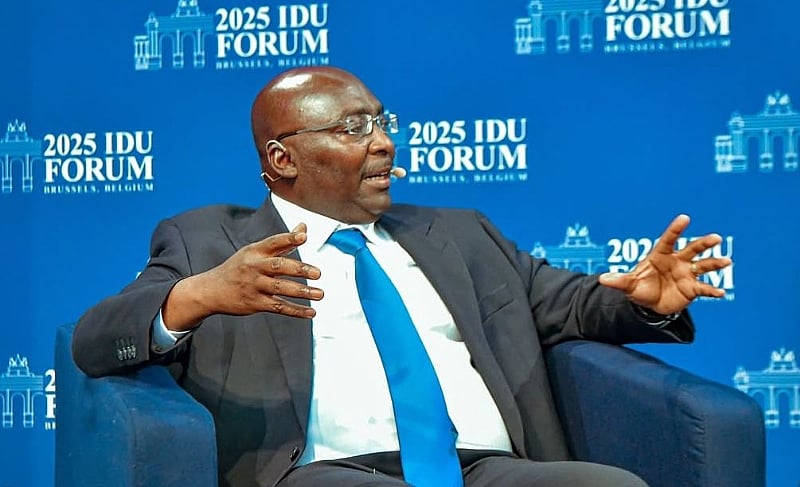Dr. Mahamudu Bawumia, the New Patriotic Party’s (NPP) chosen candidate for the 2024 presidential election, has vehemently refuted allegations of underperformance in Zongo polling stations. These claims, propagated by some within the party, including fellow flagbearer aspirant and Member of Parliament for Abetifi, Dr. Bryan Acheampong, suggest that Dr. Bawumia failed to secure significant votes from his own Muslim community, purportedly winning only a single Zongo polling station. Dr. Bawumia has categorically dismissed these assertions as unfounded propaganda, devoid of any supporting data. He challenged the narrative during a campaign event in Adansi Asokwa, emphasizing the need for evidence-based arguments and questioning the veracity of claims lacking empirical substantiation.
Dr. Bawumia countered the narrative by asserting that the NPP’s performance in Zongo communities under his leadership in the 2024 elections actually surpassed their results in the 2020 elections under then-candidate Nana Akufo-Addo. He highlighted the lack of data underpinning the criticisms and challenged his detractors to provide verifiable evidence. His response underscored a commitment to data-driven analysis and a rejection of unsubstantiated allegations. This public rebuttal marks a significant development in the internal dynamics of the NPP as they prepare for the upcoming flagbearer election.
The accusations against Dr. Bawumia appear strategically timed, emerging during the campaign period for the NPP’s flagbearer selection for the 2028 general elections. The upcoming internal election, scheduled for January 31, 2026, has intensified competition among the five aspirants vying for the party’s nomination. Dr. Bawumia’s strong defense against these accusations serves as a key element of his campaign strategy, aiming to solidify his position as a strong contender and dispel any doubts about his electoral appeal, particularly within key demographics like the Zongo communities.
The five aspirants competing for the NPP flagbearer position represent a diverse range of experience and perspectives within the party. Alongside Dr. Bawumia, the contenders include Kennedy Agyapong, the outspoken former Member of Parliament for Assin Central; Dr. Bryan Acheampong, the former Minister of Agriculture and a prominent voice within the party; Dr. Yaw Osei Adutwum, the former Minister of Education; and Kwabena Agyei Agyepong, a former General Secretary of the NPP. This diverse field of candidates underscores the dynamism within the party and sets the stage for a potentially closely contested election.
The controversy surrounding Dr. Bawumia’s alleged underperformance in Zongo communities highlights the significance of these areas in Ghanaian politics. Zongo communities, predominantly Muslim and often characterized by unique cultural and socio-economic dynamics, represent a crucial voting bloc that can significantly influence election outcomes. The ability to garner support from these communities is often viewed as a key indicator of a candidate’s broader appeal and electability. Therefore, the accusations leveled against Dr. Bawumia and his subsequent robust defense underscore the strategic importance of these communities in the upcoming elections.
The ongoing debate within the NPP also reflects the broader political landscape in Ghana, where identity politics and regional voting patterns often play a significant role. The ability to mobilize support across different ethnic, religious, and regional lines is essential for electoral success. As the NPP navigates its internal election and prepares for the 2028 general elections, the party’s ability to address these complex dynamics and present a united front will be crucial for its continued success. The contest between the five aspirants, each with their own strengths and support bases, promises a dynamic and potentially transformative period for the NPP.


